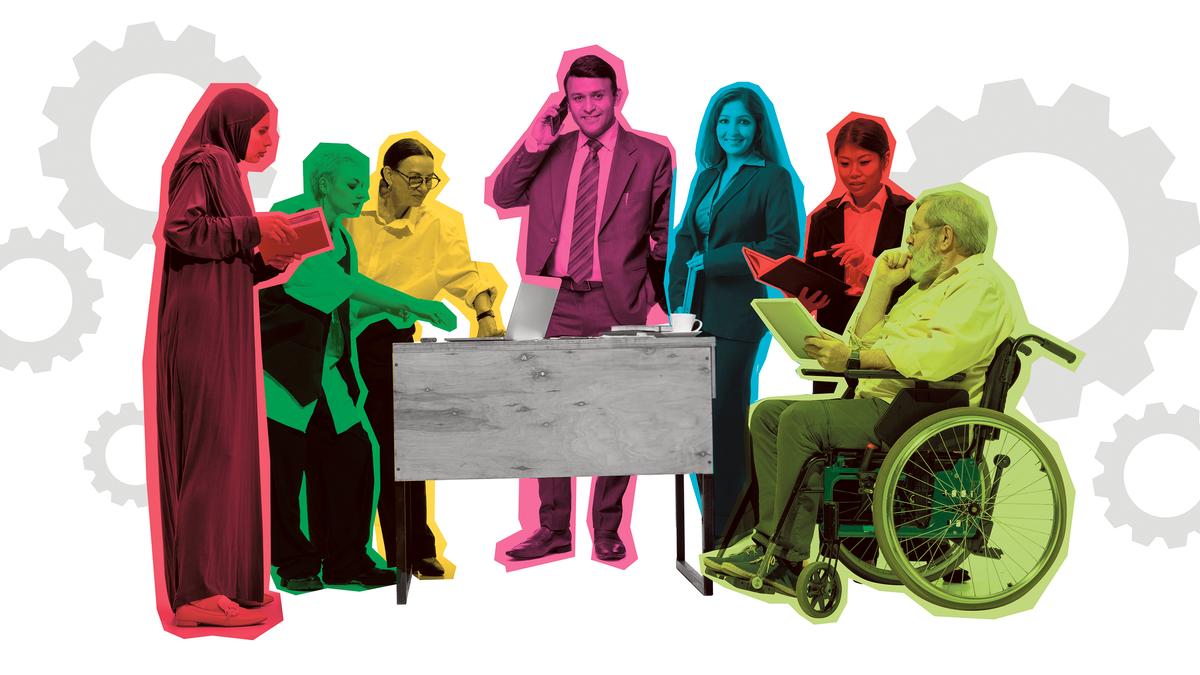
India Inc.’s DEI push
The Hindu
DEI specialists in India navigate challenges as U.S. companies scale back programs, while Indian firms lead inclusion efforts.
Over the last three months, diversity, equity and inclusion (DEI) specialists across corporate India have found themselves confronting a low-level obstacle course. Subjects from global technology companies have ghosted or regretfully withdrawn participation in ongoing research studies. DEI teams, particularly in companies headquartered in the U.S., have suddenly begun to describe themselves as working on culture, or accessibility. Journalists are asking: “Is meritocracy back?”
The shift comes in the wake of several large American companies, including Walmart, Meta, Amazon, Ford, Boeing and others, publicly scaling back their DEI programmes, following newly-elected U.S. president Donald Trump’s Executive Order in January to put a stop to all “illegal and immoral discrimination programs” and “public waste” in the name of DEI efforts. U.S. government departments have ordered probes into organisations, including hospitals, universities, federal contractors, and media companies, that practice DEI. Experts fear that legal rulings, such as the June 2024 ruling of the U.S. Supreme Court that ended race-conscious affirmative action in higher education, will jeopardise efforts meant to address social bias in the workplace.
But DEI in India, even in multinational corporations, and despite its own set of challenges, is poised to grow. In many major firms, efforts to advance inclusion for historically excluded groups — specifically women, LGBTQIA+ people, and persons with disabilities — goes back years, and in some cases, decades. This has made it complicated to roll back or shut down ongoing efforts related to the Indian context.
In addition, while these global firms are seen as beacons of DEI movements, some of India’s biggest corporations have taken up the cause. Over the last five years, some have set entirely new aspirational benchmarks, creating what HR experts call “islands of diversity” — in 2022, Hindustan Unilever inaugurated the first gender-balanced manufacturing unit in Sumerpur, Uttar Pradesh; and at Tata Steel, last year, the company announced it was recruiting and formally training transgender workers for frontline roles in mining and other heavy industry functions typically dominated by cisgender men.
Recruiters say that Indian businesses are in such critical need of talent that they must necessarily act to expand their talent pools — something borne out by an uncoordinated but widespread focus on DEI even among smaller businesses. The Indian context outside the technology and finance sectors demands investment in inclusive recruiting. “We’re still at the stage where we’re building women’s toilets in factories that never had them,” a business leader says. “That’s what DEI is in India. You can’t roll back from that.”
Take construction and real estate, a high-growth sector with almost no women on the leadership track. “We have 37% representation of women, but most of our hiring is at early-career levels,” my colleague Megha Goel, Chief People Officer at Godrej Properties, says. “Look at the pipeline in operations roles for the industry. In college, girls aren’t motivated to pick specialisations like civil engineering. When they do, they don’t stick it out in line roles because most seniors tell young women, ‘Why don’t you get into billing or procurement?’. So tomorrow, if you’re looking for a woman COO, the market isn’t there.” In a sector like this, companies committing to DEI must essentially commit to longitudinal work, beginning with entry-level pipelines and going on to work culture itself.
Over dozens of conversations with DEI experts in the months since the rollbacks began in the U.S., I assumed I was hearing widespread enthusiasm for DEI because of confirmation bias, since I work for the Godrej DEI Lab, which works to advance inclusion within the Godrej Industries Group as well as across corporate India. I reached out to seven multinational corporations whose ongoing DEI efforts I’m aware of, to ask how they were responding to the changing environment. Six of these, headquartered in the United States, did not respond.





















 Run 3 Space | Play Space Running Game
Run 3 Space | Play Space Running Game Traffic Jam 3D | Online Racing Game
Traffic Jam 3D | Online Racing Game Duck Hunt | Play Old Classic Game
Duck Hunt | Play Old Classic Game











